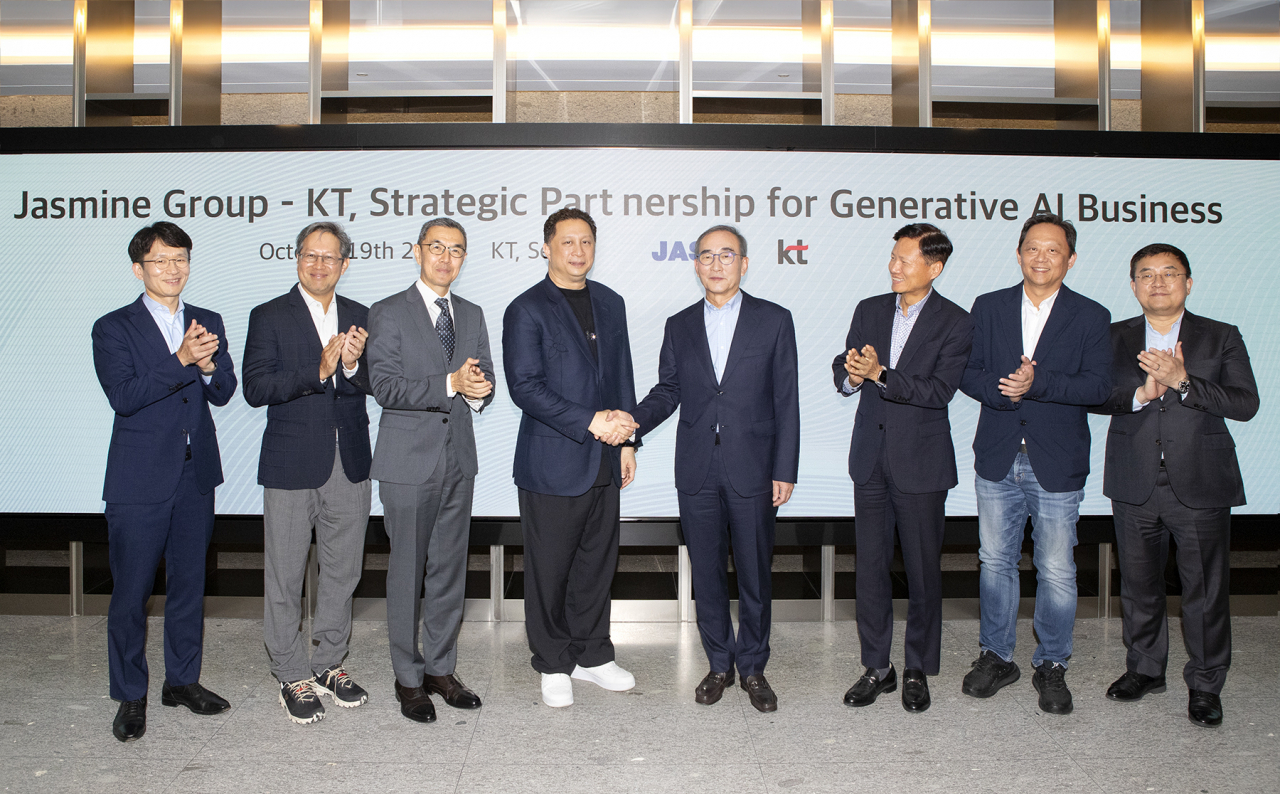
KT Corp. said Sunday it is teaming up with Thailand’s telecom giant Jasmine Group to co-develop an artificial intelligence language model specialized in Thai and to launch related services together in Southeast Asia.
Following the signing of a memorandum of understanding in September last year, top executives, including KT CEO Kim Young-shub and Jasmine Group Chairman Pete Bodharamik, gathered in Seoul on Thursday to discuss more details of the partnership.
Under the extensive partnership, KT will share its technological know-how based on its own hyperscale artificial intelligence service Mi:dm, while Jasmine will build the GPU Farm, a set of servers for computer processing for the new service.
They will build the GPU Farm within a new data center of JasTel, a telecom service company wholly owned by Jasmine Group, in the first half of next year, with plans to launch a Thai language model later next year. Based on its Thai business model, the companies plan to enter other Southeast Asian markets such as Laos and Cambodia in phases.
According to market tracker Statista, generative AI services in Southeast Asia are expected to grow into a $7.6 billion market by 2030. Another report by data platform Dataiku estimates that AI-related spending in Southeast Asia will surge from $174 million in 2022 to $646 million in 2026.
With the latest partnership, KT said it also aims to create a new market for a non-English language model that is not affiliated with big tech companies.
“When it comes to GPT-3, one of the most representative language models, English is known to make up 92.6 percent of its data processing, while Korean and Thai remain at 0.016 percent and 0.013 percent. Due to a lack of learning data, it has limitations in understanding the cultural and social contexts of a country,” a KT official said.
“We aim to support Jasmine Group to secure its own language model and expand the presence of our Mi:dm model in other nations globally.”
KT’s Mi:dm, a homegrown language model specialized in Korean, is set to make its official debut later this month.




















